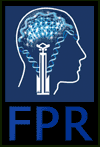 Two great conferences coming next year.
Two great conferences coming next year.
The first is the Foundation for Psychocultural Research‘s 4th major interdisciplinary conference, Cultural and Biological Contexts of Psychiatric Disorder: Implications for Diagnosis and Treatment.
The conference will run January 22-24th at the Neuroscience Research Building Auditorium at UCLA. There is an all-star list of speakers, including Tom Insel, director of the National Institute of Mental Health; Kay Redfield Jamison, the clinical psychologist and author of books that have spoken eloquently of bipolar disorder; and two leading anthropologists of psychiatry, Byron Good and Lawrence Kirmayer. Other big names include Simon Baron-Cohen and Eric Kandel, the Nobel Prize Winner.
You can download the entire preliminary program here for the Cultural and Biological Contexts of Psychiatric Disorder conference.
Early registration runs until November 13th, with a lower cost. You can still register after November 14th, but it looks like that will cost about $50 more across all categories. Here is the link to registration.
The second conference is The Social Determinants of Mental Health: From Awareness to Action. This conference runs June 3rd and 4th, 2010, and will be hosted at the Drake Hotel in Chicago. The Institute on Social Exclusion at the Adler School of Professional Psychology is organizing the event.
The keynote speaker is David Satcher, the 16th Surgeon General of the United States and former director of the CDC. The plenary speaker is Sandro Galea, the director of the Center for Global Health at the University of Michigan.
The Adler Institue on Social Exclusion has issued a call for papers. Three hundred word abstracts are due December 31st and should be emailed to ise@adler.edu. Check the call for papers for more details, but broadly they want submissions that:
Build new knowledge and/or practice innovations by doing at least one of the following:
* applies the social determinants frame to mental health;
* bridges disciplinary, professional, and sectoral perspectives on the social determinants of mental health;
* illustrates the mechanisms and the pathways by which social context impacts mental health and well-being;
* illustrates the relationships between “macro” (e.g., national and international economic, climatic, political, demographic, and social forces), “meso” (e.g., family, neighborhood, and community characteristics) and “micro” (e.g., individual attributes) variables and mental health; and/or
* proposes new or describes existing policy and programmatic mental health interventions that are based the on social determinants frame.
